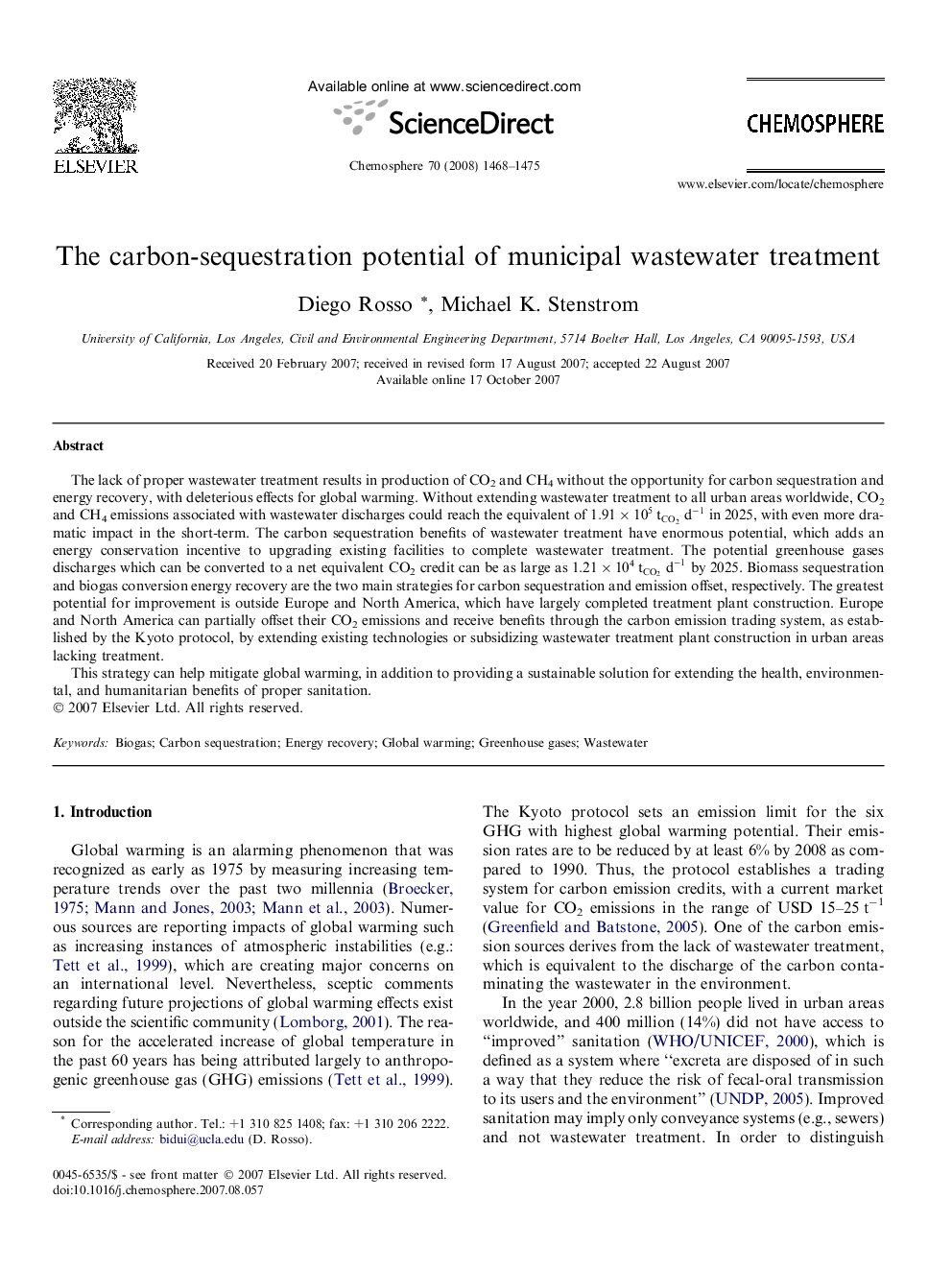| Article ID | Journal | Published Year | Pages | File Type |
|---|---|---|---|---|
| 4414849 | Chemosphere | 2008 | 8 Pages |
The lack of proper wastewater treatment results in production of CO2 and CH4 without the opportunity for carbon sequestration and energy recovery, with deleterious effects for global warming. Without extending wastewater treatment to all urban areas worldwide, CO2 and CH4 emissions associated with wastewater discharges could reach the equivalent of 1.91×105tCO2d-1 in 2025, with even more dramatic impact in the short-term. The carbon sequestration benefits of wastewater treatment have enormous potential, which adds an energy conservation incentive to upgrading existing facilities to complete wastewater treatment. The potential greenhouse gases discharges which can be converted to a net equivalent CO2 credit can be as large as 1.21×104tCO2d-1 by 2025. Biomass sequestration and biogas conversion energy recovery are the two main strategies for carbon sequestration and emission offset, respectively. The greatest potential for improvement is outside Europe and North America, which have largely completed treatment plant construction. Europe and North America can partially offset their CO2 emissions and receive benefits through the carbon emission trading system, as established by the Kyoto protocol, by extending existing technologies or subsidizing wastewater treatment plant construction in urban areas lacking treatment.This strategy can help mitigate global warming, in addition to providing a sustainable solution for extending the health, environmental, and humanitarian benefits of proper sanitation.
